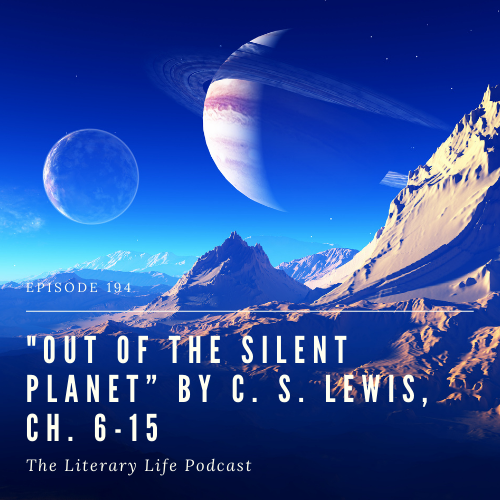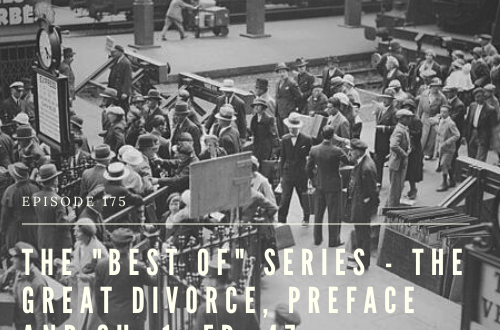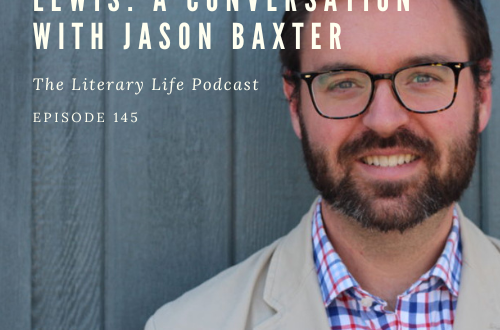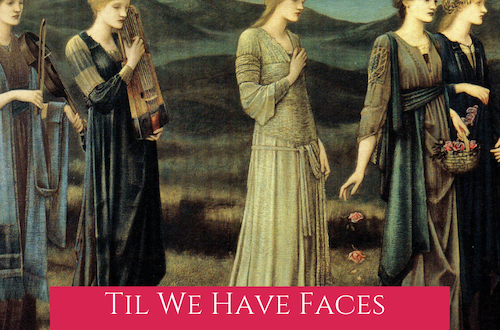
Episode 194: “Out of the Silent Planet” by C. S. Lewis, Ch. 6-15
On The Literary Life podcast today, our hosts continue their discussion of C. S. Lewis’ science fiction novel Out of the Silent Planet, covering chapters 6-15. Angelina Stanford, Cindy Rollins, and Thomas Banks begin by sharing their commonplace quotes, including some heated debate about sausages, then dive in to this section. They start by looking at Ransom’s need to let go of some of his own modern preconceptions and categories, in spite of being steeped in the classics. Angelina, Thomas, and Cindy also discuss a variety of other themes, including: the contrasts between Lewis and Tolkien in world-building, Lewis’ crafting a medieval tale in the genre of modern science fiction, and the problems with Ransom’s anthro-centric perspective.
House of Humane Letters is thrilled to announce an all new webinar from Dr. Jason Baxter coming October 31st! Register today for Can Dante’s Inferno Save the World? Also coming up from House of Humane Letters on November 16, 2023, Jennifer Rogers’ webinar on Tolkien and The Old English Tradition. You can sign up now and save your spot!
Listen Now:
Commonplace Quotes:
It is to me inconceivable that Nature as we see it is either what God intended or merely evil; it looks like a good thing spoiled.
C. S. Lewis, from Letters of C. S. Lewis
What do you usually do when you are shut up in a secret room, with no chance of getting out for hours? As for me, I always say poetry to myself. It is one of the uses of poetry–one says it to oneself in distressing circumstances of that kind, or when one has to wait at railway stations, or when one cannot get to sleep at night. You will find poetry most useful for this purpose. So learn plenty of it, and be sure it is the best kind, because this is most useful as well as most agreeable.
Edith Nesbit, from The House of Arden
Lewis began the trilogy as a conscious critique of what he called “Wellsianity,” a philosophy that applies Darwinism to the metaphysical sphere, believing that humans may evolve into a new species of gods, spreading from world to world and galaxy to galaxy. Though one finds this quasi-religious belief sometimes called “Evolutionism” in Olaf Stapledon, G. B. Shaw, and C. H. Waddington, Lewis found it most fully embodied in Wells’ novels, and he set out to produce a Wellsian fantasy with an anti-Welsian theme. Lewis’ Ransom books contrast so sharply from other stories of space voyages that Robert Scholes and Eric S. Rabkin credit him with inventing a new genre: “anti-science fiction.”
from Reading the Classics with C. S. Lewis, edited by Thomas L. Martin
A Selection from “I Saw Eternity the Other Night”
by Henry Vaughn
I saw Eternity the other night, Like a great ring of pure and endless light, All calm, as it was bright; And round beneath it, Time in hours, days, years, Driv'n by the spheres Like a vast shadow mov'd; in which the world And all her train were hurl'd.
Books Mentioned:
Support The Literary Life:
Become a patron of The Literary Life podcast as part of the “Friends and Fellows Community” on Patreon, and get some amazing bonus content! Thanks for your support!
Connect with Us:
You can find Angelina and Thomas at HouseofHumaneLetters.com, on Instagram @angelinastanford, and on Facebook at www.facebook.com/ANGStanford/
Find Cindy at morningtimeformoms.com, on Instagram @cindyordoamoris and on Facebook at www.facebook.com/CindyRollinsWriter. Check out Cindy’s own Patreon page also!
Follow The Literary Life on Instagram, and jump into our private Facebook group, The Literary Life Discussion Group, and let’s get the book talk going! http://bit.ly/literarylifeFB
Subscribe to The Lit Life:








